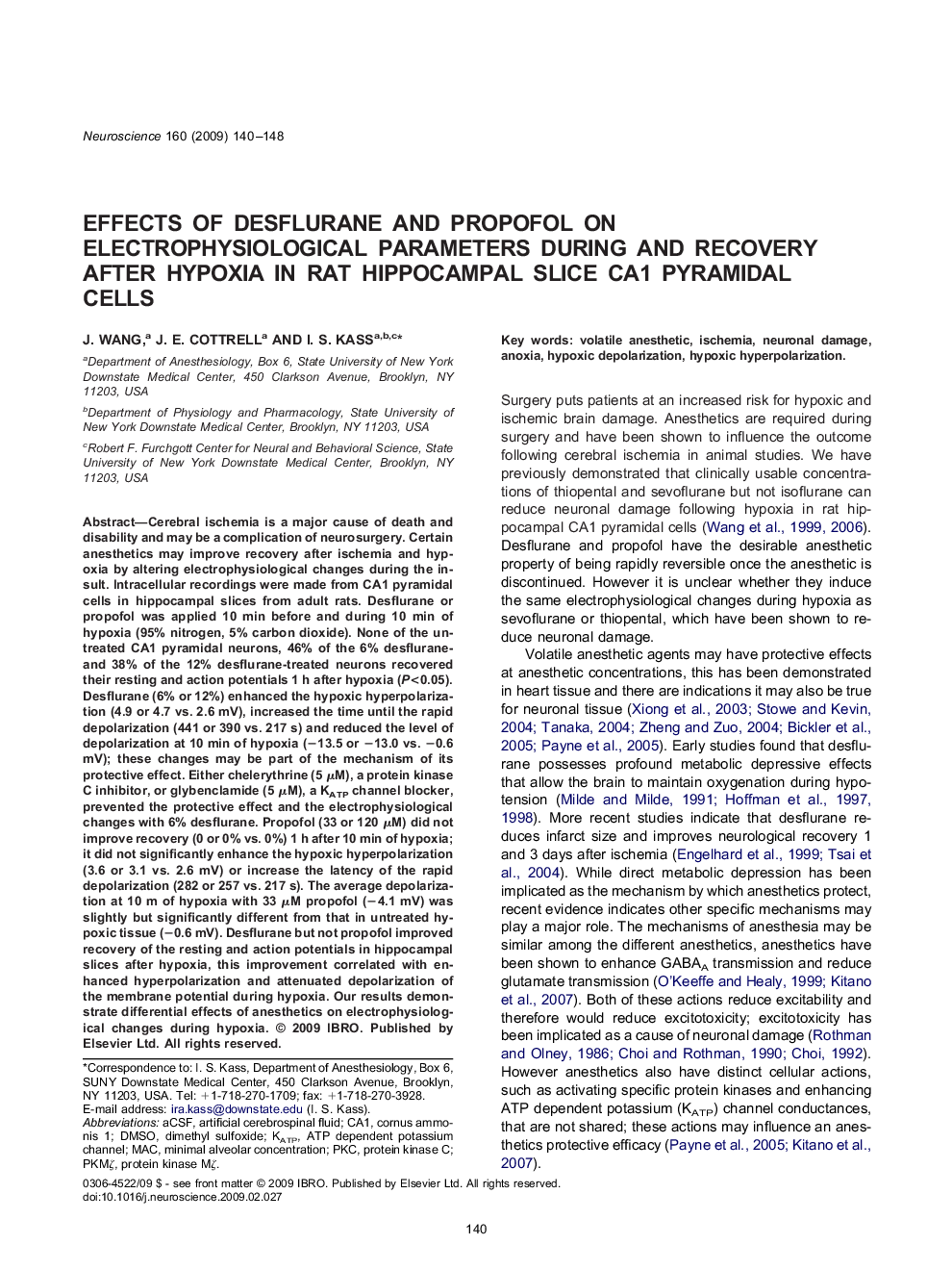| Article ID | Journal | Published Year | Pages | File Type |
|---|---|---|---|---|
| 4340086 | Neuroscience | 2009 | 9 Pages |
Cerebral ischemia is a major cause of death and disability and may be a complication of neurosurgery. Certain anesthetics may improve recovery after ischemia and hypoxia by altering electrophysiological changes during the insult. Intracellular recordings were made from CA1 pyramidal cells in hippocampal slices from adult rats. Desflurane or propofol was applied 10 min before and during 10 min of hypoxia (95% nitrogen, 5% carbon dioxide). None of the untreated CA1 pyramidal neurons, 46% of the 6% desflurane- and 38% of the 12% desflurane-treated neurons recovered their resting and action potentials 1 h after hypoxia (P<0.05). Desflurane (6% or 12%) enhanced the hypoxic hyperpolarization (4.9 or 4.7 vs. 2.6 mV), increased the time until the rapid depolarization (441 or 390 vs. 217 s) and reduced the level of depolarization at 10 min of hypoxia (−13.5 or −13.0 vs. −0.6 mV); these changes may be part of the mechanism of its protective effect. Either chelerythrine (5 μM), a protein kinase C inhibitor, or glybenclamide (5 μM), a KATP channel blocker, prevented the protective effect and the electrophysiological changes with 6% desflurane. Propofol (33 or 120 μM) did not improve recovery (0 or 0% vs. 0%) 1 h after 10 min of hypoxia; it did not significantly enhance the hypoxic hyperpolarization (3.6 or 3.1 vs. 2.6 mV) or increase the latency of the rapid depolarization (282 or 257 vs. 217 s). The average depolarization at 10 m of hypoxia with 33 μM propofol (−4.1 mV) was slightly but significantly different from that in untreated hypoxic tissue (−0.6 mV). Desflurane but not propofol improved recovery of the resting and action potentials in hippocampal slices after hypoxia, this improvement correlated with enhanced hyperpolarization and attenuated depolarization of the membrane potential during hypoxia. Our results demonstrate differential effects of anesthetics on electrophysiological changes during hypoxia.
